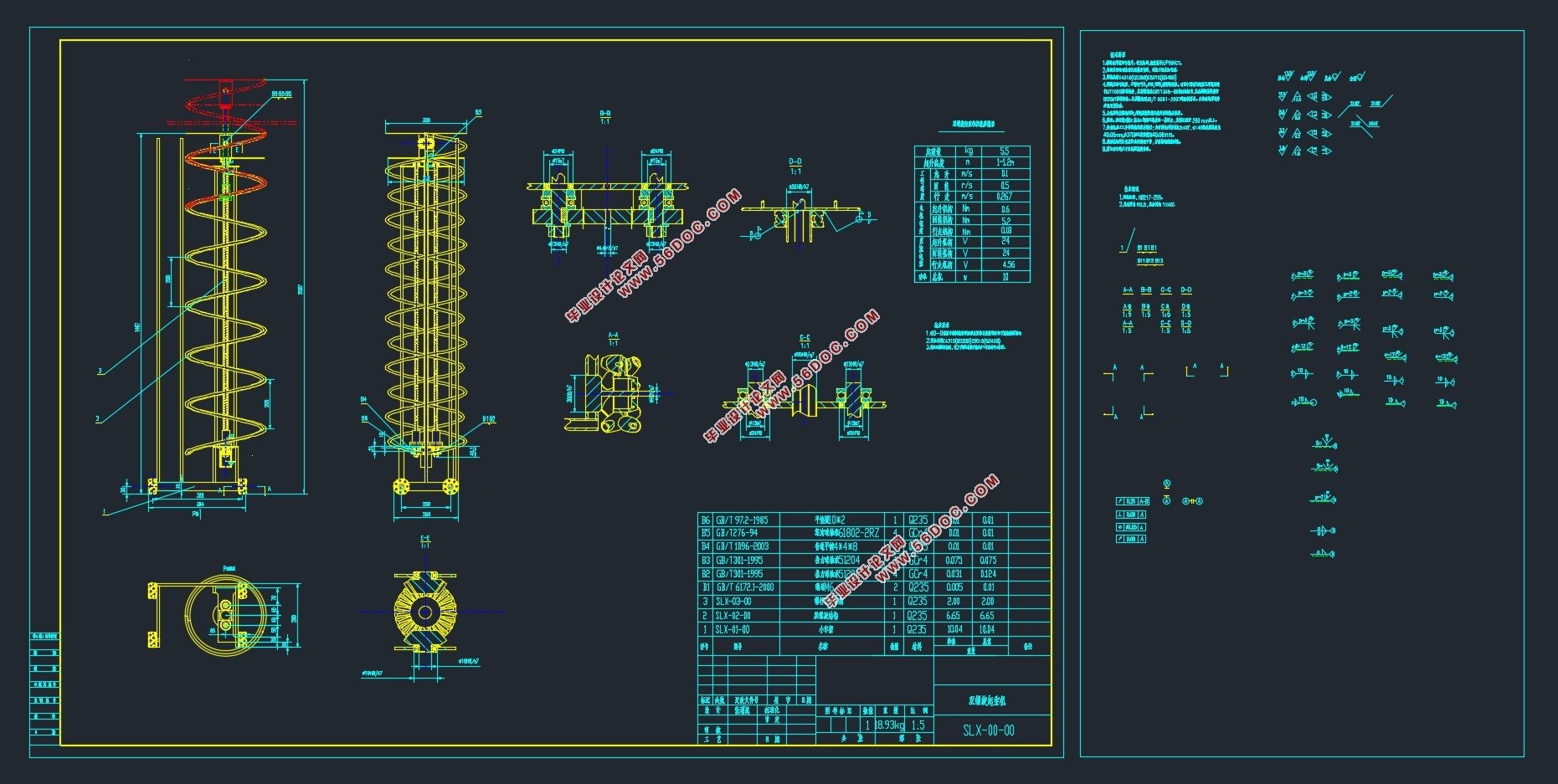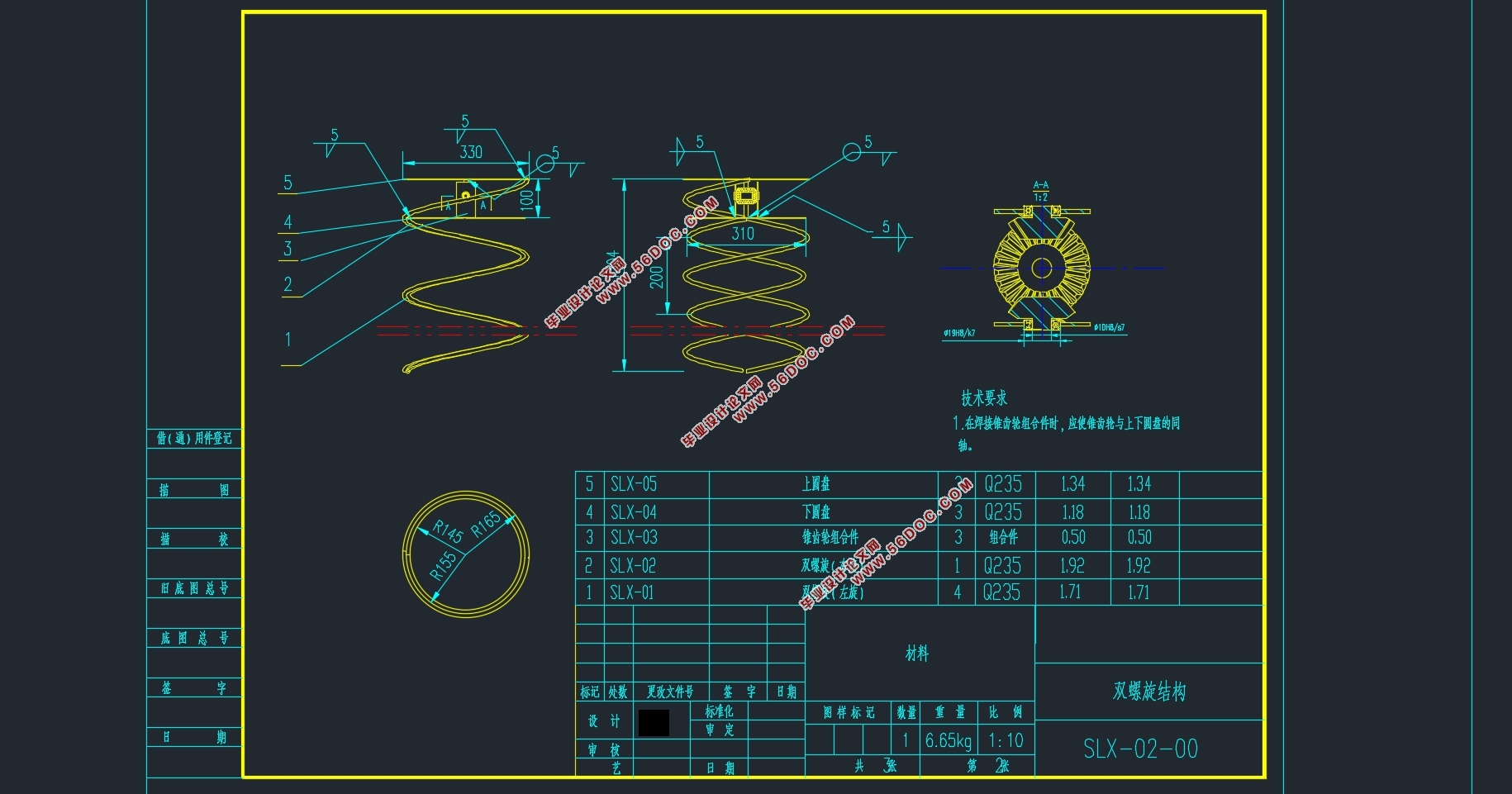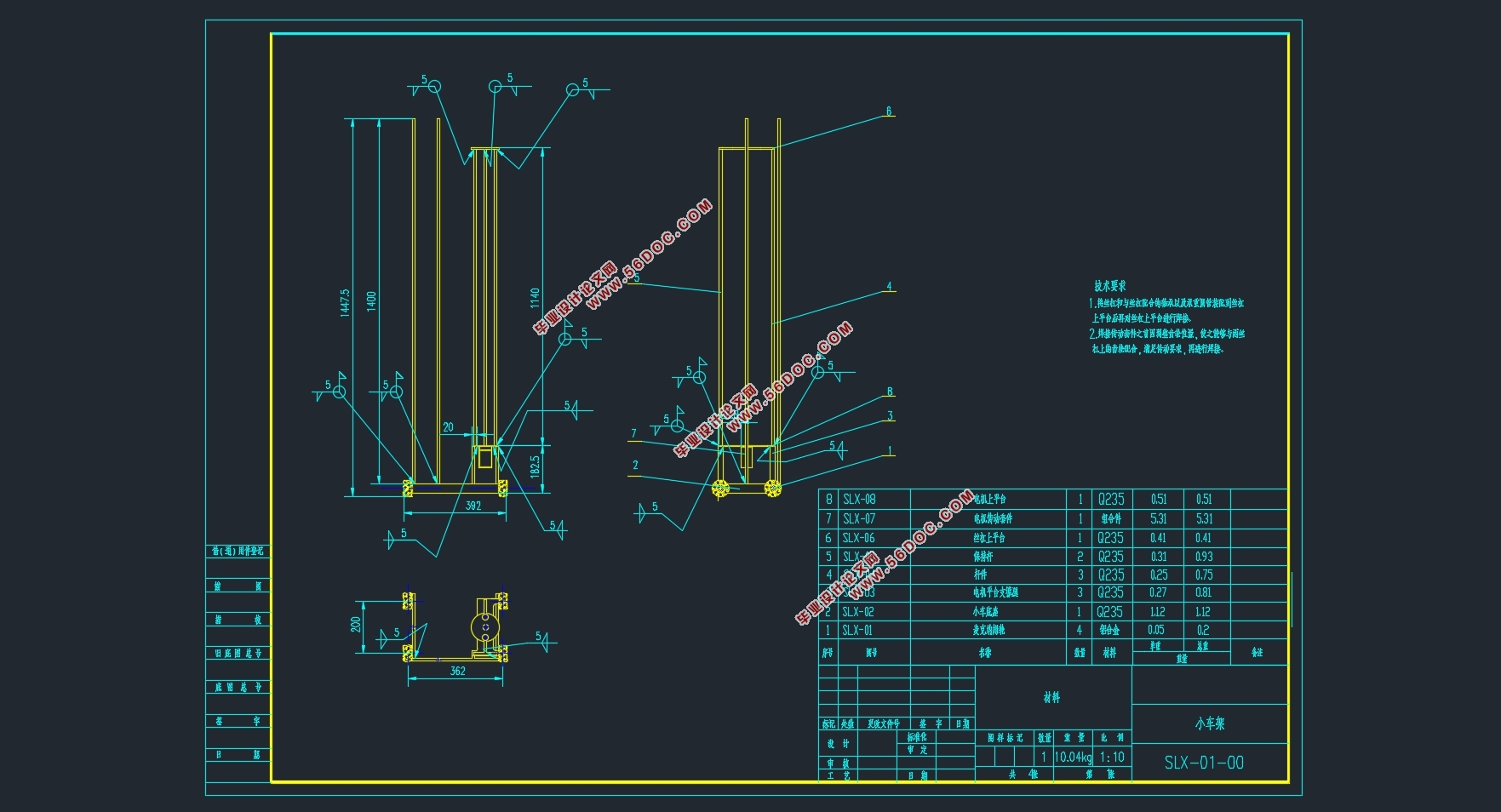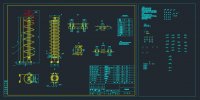双螺旋起重机设计(含CAD零件图装配图)
来源:56doc.com 资料编号:5D21789 资料等级:★★★★★ %E8%B5%84%E6%96%99%E7%BC%96%E5%8F%B7%EF%BC%9A5D21789
资料以网页介绍的为准,下载后不会有水印.资料仅供学习参考之用. 密 保 惠 帮助
资料介绍
双螺旋起重机设计(含CAD零件图装配图)(任务书,开题报告,外文翻译,论文说明书10000字,CAD图3张)
摘要
本文根据国内外新型起重机的发展现状以及设计任务要求提出了一种双螺旋起重机,以完成在三分钟内起升运输十五箱牛奶的目的并对双螺旋起重机进行了整体、机构和结构的设计计算。为了更好的完成本次设计,采用了SolidWorks建模软件进行三维建模、AutoCAD绘图软件绘制总体装配图与零件图、ANSYS分析软件对双螺旋结构和承重圆管进行强度刚度稳定性校验。本次设计的双螺旋起重机与传统的起重机相比具有两处明显的创新点,行走机构采用麦克纳姆轮全方位移动小车平台,可实现全方位自由移动,提高了运行效率;起升机构采用双螺旋摩擦起升的原理且可同时起升五箱牛奶箱,提高了起升的效率。
关键词:双螺旋;新型起重机;麦克纳姆轮。
Abstract
This paper proposes a double helix crane based on the development status of the new type cranes at home and abroad and the design task requirements to complete the lifting of 15 boxes of milk in three minutes and design calculation of integral, mechanism and structure for double helix cranes.In order to better complete this design,SolidWorks modeling software was used for 3D modeling, AutoCAD drawing software to draw the overall assembly drawing and parts drawing,and ANSYS analysis software was used to check the strength and stiffness stability of the double helix structure and bearing tube.The double helix crane designed this time has two obvious innovations compared with the traditional crane.The walking mechanism adopts the Mcnam wheel omni-directional mobile trolley platform, which can realize all-round free movement and improve the operating efficiency;the hoisting mechanism adopts Double spiral friction lift principle and can lift five boxes of milk tank at the same time,improve the lifting efficiency.
Keywords: double helix; new type crane; Mcnam wheel.




目录
摘要 3
Abstract 4
目录 5
第一章绪论 7
1.1课题研究的目的和意义 7
1.2国内外研究现状 7
1.3毕设研究的内容 7
1.4本章小结 9
第二章双螺旋起重机吊装工艺分析及整体设计 10
2.1吊装工艺分析 10
2.2双螺旋起重机的总体方案设计 10
2.3本章小结 13
第三章双螺旋起重机施工详细设计 14
3.1 载荷计算及载荷组合 14
3.1.1常规载荷计算 14
3.1.2偶然载荷计算 17
3.1.3载荷组合 17
3.2双螺旋起重机机构设计 18
3.2.1起升机构设计 18
3.2.2双螺旋机构设计 20
3.2.3行走机构设计 22
3.3双螺旋起重机的结构设计 23
3.3.1基于ANSYS的双螺旋结构计算 23
3.3.2承重圆管的强度刚度稳定性的验算 25
3.4轮压及整机稳定性计算 27
3.4.1起重机轮压计算 27
3.4.2整体抗倾覆稳定性的计算 28
3.5本章小结 29
第四章环保经济性分析 30
第五章全文总结与展望 31
参考文献 32
附录 33
致谢 36
|









